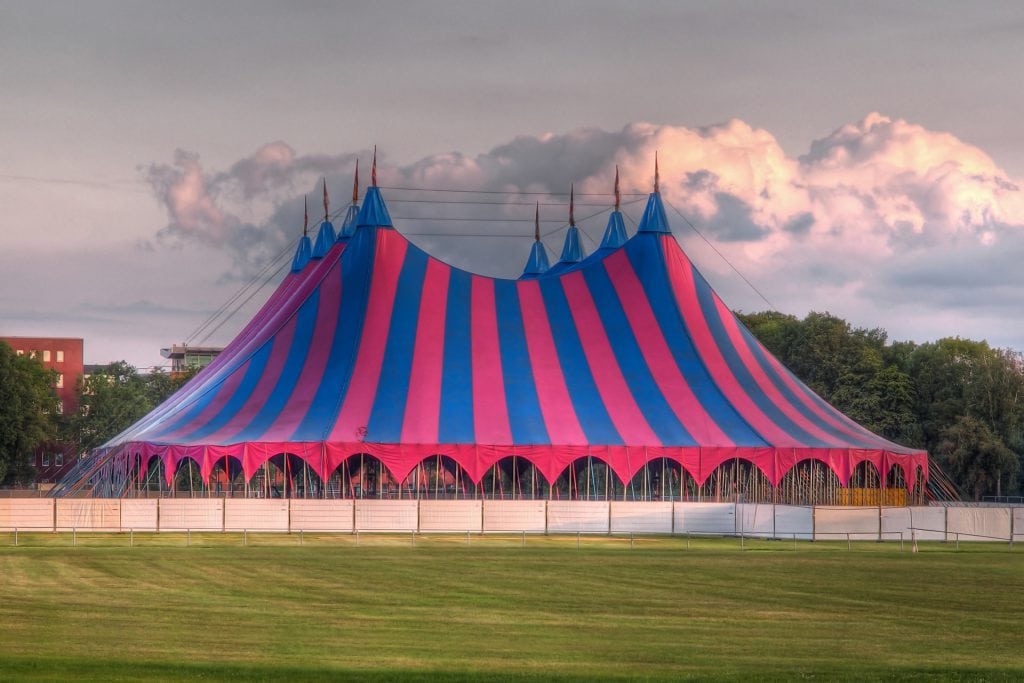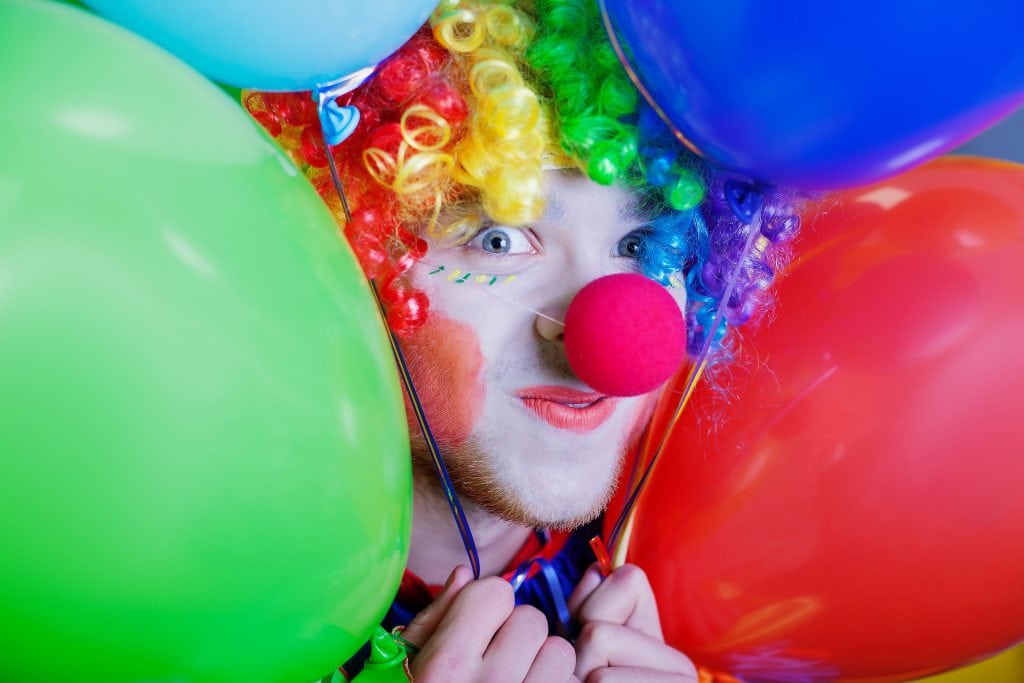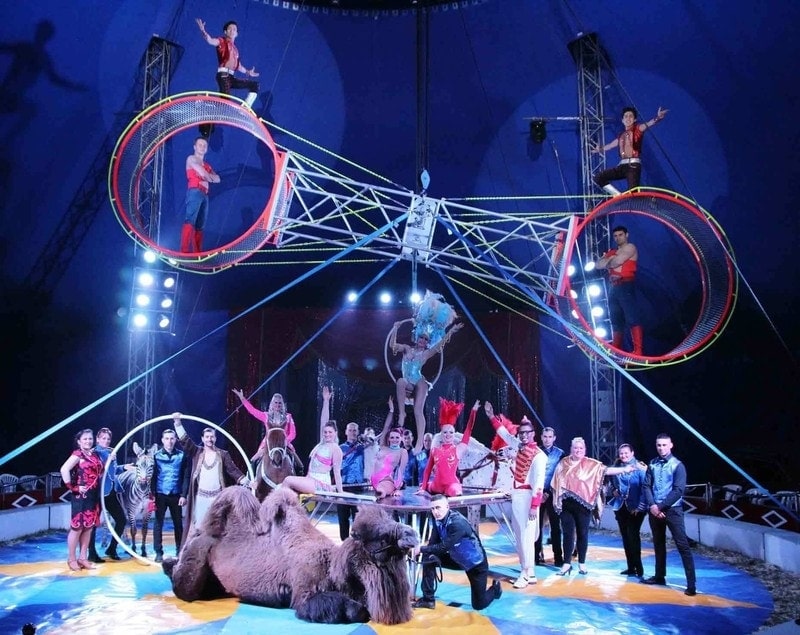Dreams have long fascinated humans, serving as mysterious windows into our subconscious minds. Among the myriad of dream scenarios, those involving circuses hold a special place due to their rich symbolism and potential for diverse interpretations. This article delves deep into the world of circus dreams, exploring their symbolism, psychological significance, and cultural interpretations across various aspects of life.
The Symbolic Nature of Circus Dreams
Circus dreams are often vibrant, colorful, and filled with a sense of wonder and excitement. The circus itself is a powerful symbol, representing a world apart from our everyday lives – a place of magic, illusion, and extraordinary feats. In dreams, the circus can embody various meanings, depending on the dreamer’s personal experiences and emotions.
The circus is typically associated with:
- Entertainment and joy
- Spectacle and performance
- Illusion and deception
- Oddities and uniqueness
- Childhood memories and nostalgia
When interpreting circus dreams, it’s crucial to consider the specific elements present, such as the performers, animals, audience, and overall atmosphere. Each of these components can add layers of meaning to the dream’s interpretation.
Psychological Perspectives on Circus Dreams
From a psychological standpoint, circus dreams often reflect the dreamer’s inner emotional state and life circumstances. Dr. Carl Jung, a pioneering psychologist in dream analysis, believed that dreams were a way for the unconscious mind to communicate with the conscious self. In this context, circus dreams might represent:
- A desire for excitement or escape from routine
- Feelings of being overwhelmed by life’s “performances”
- A need for self-expression or recognition
- Confronting one’s fears or insecurities
- Exploring different aspects of one’s personality
Dr. Sigmund Freud, another influential figure in dream interpretation, might have viewed circus dreams as expressions of repressed desires or childhood memories. The circus, with its air of freedom and unconventionality, could symbolize the release of inhibitions or the fulfillment of forbidden wishes.
Cultural Interpretations of Circus Dreams
Different cultures may interpret circus dreams in various ways, often influenced by their own traditions and beliefs. Here are some cultural perspectives on circus dreams:
- Western cultures: Often associate circus dreams with entertainment, childhood nostalgia, and the pursuit of dreams or ambitions.
- Eastern cultures: May view circus dreams as representations of life’s illusions or the transient nature of worldly pleasures.
- Native American cultures: Might interpret circus dreams as messages from spirit guides or as symbols of community celebration.
- African cultures: Could see circus dreams as reflections of storytelling traditions or as omens of upcoming communal events.
Circus Dreams and Personal Growth
Circus dreams can offer valuable insights into one’s personal growth journey. The various elements of a circus dream might represent different aspects of the dreamer’s life or personality:
- Tightrope walking: Balancing different aspects of life or taking risks
- Clowns: Hiding true emotions or fear of ridicule
- Lion taming: Confronting fears or asserting control over challenging situations
- Trapeze artists: Taking leaps of faith or trusting others
- Ringmaster: Leadership abilities or desire for control
By reflecting on these symbols, dreamers can gain insights into their personal challenges, aspirations, and areas for growth.
Circus Dreams and Relationships
Dreams involving circuses can also provide insights into one’s relationships. The interactions between performers, the audience, and animals in the dream might mirror the dreamer’s social dynamics. For example:
- Performing in the circus: Desire for attention or approval from others
- Being in the audience: Feeling like an outsider or observer in relationships
- Interacting with circus animals: Dealing with “wild” or unpredictable aspects of relationships
- Working together with other performers: Teamwork and collaboration in relationships
Circus Dreams and Career
Circus dreams can often relate to one’s professional life, reflecting career aspirations, challenges, or work environment. Some interpretations might include:
- Feeling like a juggler: Balancing multiple responsibilities or projects
- Being a ringmaster: Desire for leadership or control in the workplace
- Performing a difficult act: Striving for success or recognition in one’s career
- Fear of failing in front of an audience: Work-related anxiety or imposter syndrome
Spiritual Meaning of Circus in Dreams
From a spiritual perspective, circus dreams can be interpreted as messages from the universe or one’s higher self. The circus, with its myriad of characters and experiences, might represent the diverse aspects of one’s spiritual journey. The dream could be encouraging the dreamer to embrace life’s experiences, both joyful and challenging, as part of their spiritual growth.
Moreover, the transient nature of a circus – arriving in town, putting on a spectacular show, and then moving on – could symbolize the impermanence of life and the importance of living in the present moment. This aligns with many spiritual teachings that emphasize mindfulness and the acceptance of life’s ever-changing nature.
Biblical Meaning of Circus in Dreams
While circuses as we know them today didn’t exist in biblical times, the concept of spectacle and performance can be found in biblical narratives. In a biblical context, a circus dream might be interpreted as a warning against vanity or the pursuit of worldly pleasures at the expense of spiritual growth.
Alternatively, it could represent the diversity of God’s creation, with the various performers and animals symbolizing different aspects of humanity and nature. The dream might be encouraging the dreamer to appreciate the wonder and complexity of the world while maintaining their faith and spiritual focus.
Common Circus Dream Scenarios and Their Interpretations
- Eating or drinking at the circus: This could represent indulgence in life’s pleasures or a need for emotional nourishment.
- Seeing a circus: Observing a circus in a dream might indicate a desire for more excitement in life or a feeling of being a spectator rather than a participant in one’s own life.
- Performing in a circus: This could symbolize a need for recognition or a fear of being judged by others.
- Riding a circus animal: This might represent taking control of one’s “wild” side or harnessing one’s inner strengths.
- Fighting with circus performers: This could indicate internal conflicts or struggles with aspects of one’s personality.
- Buying circus tickets: This might symbolize investing in new experiences or taking steps towards personal growth.
- Playing circus games: This could represent taking risks or testing one’s skills in life.
- Destroying a circus: This might indicate a desire to break free from illusions or false perceptions in one’s life.

Expert Opinions on Circus Dreams
Dr. Kelly Bulkeley, a dream researcher and visiting scholar at the Graduate Theological Union in Berkeley, California, suggests that circus dreams often reflect the dreamer’s attitude towards risk-taking and unconventional experiences. She states, “Circus dreams can reveal our hidden desires for adventure and our fears of stepping outside our comfort zones.”
Dr. Rubin Naiman, a sleep and dream specialist at the University of Arizona, emphasizes the importance of emotional context in dream interpretation. He notes, “The feelings experienced during a circus dream are just as important as the visual symbols. A joyful circus dream might indicate satisfaction with life’s variety, while a frightening one could point to feelings of chaos or loss of control.”
Practical Advice for Interpreting Circus Dreams
For those who frequently dream about circuses, here are some practical steps to help decode these dreams:
- Keep a dream journal: Record your circus dreams in detail, including emotions, colors, and specific elements that stand out.
- Identify recurring themes: Look for patterns in your circus dreams over time. Do certain performers or acts appear frequently?
- Reflect on your current life situation: Consider how the elements of your circus dreams might relate to your waking life experiences.
- Explore your emotions: Pay attention to how you feel during and after the dream. These emotions can provide valuable clues to the dream’s meaning.
- Consider personal associations: Reflect on what the circus means to you personally. Childhood memories or cultural associations can influence dream symbolism.
- Practice mindfulness: Being more aware of your thoughts and feelings during the day can help you better understand your dream symbols.
- Seek professional guidance: If circus dreams are causing distress or confusion, consider speaking with a dream analyst or therapist specializing in dream interpretation.
In conclusion, circus dreams offer a rich tapestry of symbols and meanings that can provide valuable insights into our psyche, emotions, and life circumstances. By paying attention to these dreams and reflecting on their possible interpretations, we can gain a deeper understanding of ourselves and our journey through life. Remember, while general interpretations can be helpful, the most meaningful insights often come from personal reflection and connecting the dream symbols to your own unique experiences and emotions.

Was the circus dream meaning helpful to you? Please share this dream with your friends.
